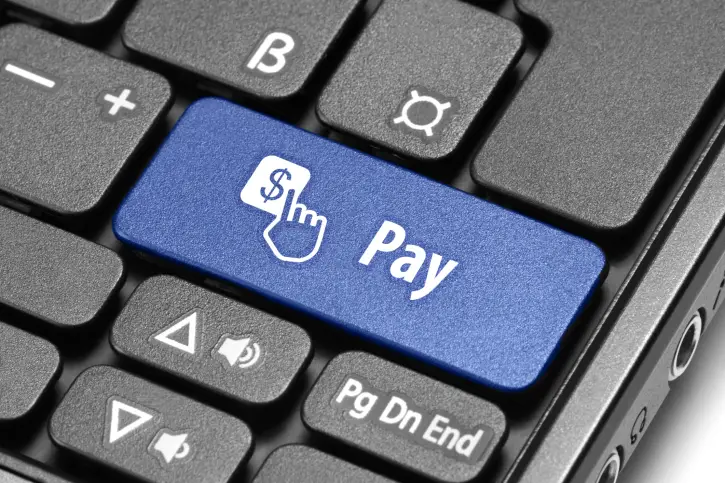The world has changed a lot over the last year, not least in the worlds of business and work. Some people have been forced to change how they work, with remote working becoming the norm for people across America and beyond.
Others have chosen to make a break and stride out on their own, leaving the nine-to-five behind and starting life as a freelancer. They’re in good company—by the close of 2019, there were approximately 57 million freelance workers in the United States alone, and that figure is sure to have risen over this unique past year.
The Advantages Of Being A Freelancer
Setting up as a freelancer is relatively inexpensive, especially if you have skills that are in demand and the ability to turn website ideas into practice. The major benefits of being a freelancer can vary from one person to the next, but they commonly include:
- Turn your home into an office, or work from anywhere
- Fit your work around your personal life
- Say goodbye to daily commutes
- Be your own boss and profit from your own decisions
- Make the most of your skills and talents
These are compelling reasons to become a freelancer or to concentrate more fully on freelance work you already do. Freelancing brings a whole host of rewards, but let’s face it — there’s one type of reward that we really can’t do without: money.
Whether you’re new to freelancing or an old hand at being self-employed, you should always be looking to earn more money. To earn that pay raise you’ll have to pitch great ideas or sell a great service or product. You’ll also have to negotiate with your clients, and we’re here to show you just how to do that.
Five Steps To Raising Your Rates
1. Know Your Value
How much is your work worth? Nobody knows that as well as you do. Clients only see the completed work you put in front of them, and maybe a step or two of the process along the way, but of course there’s much more to it than that. Being a freelancer is like being a swan – the results may be elegant, but there’s a lot of work going on under the water. You need to charge for that.
All freelancers have invested a lot of time to get where they are; they’re likely to have invested money, too. Bills are important, but consider the career-related equipment you’ve bought as well, from specialist tools to business phone systems that make communication easy. Factor these in when calculating how much you need to earn, and how much you deserve to earn.
Learn how to make $200 PER article for legitimate businesses
2. Boost Your Self-Confidence
Take a look at the most successful people in any field, from sport to business, and one thing connects them: they’re all supremely self-confident. Confidence is the key to success as a freelancer, especially when it comes to winning a pay raise.
It doesn’t matter whether you’re an introvert or extrovert, you can still boost your confidence levels through simple exercises. Firstly comes positive affirmation. Tell yourself that you are worth a higher rate of pay, and you will win it. Secondly, practice what you’re going to say until it becomes second nature. Thirdly, visualize your success. With the confidence boost these exercises bring, your vision should soon become reality.
3. Look The Part
One of the great things about being a freelancer, and the flexible work it allows, is that you can dress just how you please. Sometimes it pays to look professional. When you’re meeting a new client, on or offline, or negotiating rates of pay, you should always dress to impress.
You may be contacting clients by email, but you may be talking to them via a conference call. In this case, ensure that you have a reliable system in place, and a conference call headset you can rely on. Dress smartly and show that you mean business and you’ll be off to a great start in the negotiation process.
4. Remember That You’re In Charge
It’s the freelancer who is in charge when it comes to their rates and how much they get paid, but it’s easy to forget that. Some self-employed workers allow their clients to dictate terms to them, but that’s a sure-fire way to end up with a payment that’s far less than you really deserve.
Don’t allow yourself to be dictated to, and be firm but fair in your negotiations. Your skills are in high demand, and you deliver great results on time, every time, so be sure that your client understands this.
The truth is that many companies pay as little as they can get away with and that not all people are treated equally. Stats show that women are paid just 82 cents for every dollar that a man is paid, and this gender pay gap can apply to freelance as well as employed work. Don’t sell yourself short. Be prepared to walk away, and ensure that your client recognizes this.
5. Plan For Growth
Smart businesses know the importance of moving forward rather than standing still. They adopt process improvement strategies which bring growth year upon year. As a freelancer, you should be aiming for annual growth, too.
When was the last time that you changed your hourly rate or the cost of the product or service you sell? If it doesn’t increase annually then you’re becoming poorer every year. Always allow for inflation, but factor in the other variables we’ve looked at earlier. Send polite but professional emails to your clients explaining your change in rates, and reflect that in your invoices too.
Planning is at the heart of successful negotiating just as much as being confident is. Use a whiteboard app to keep track of your income, your plans for future expansion, and your negotiation strategy. As a freelancer, you owe it to yourself to get the maximum amount possible for your work, and doing so will bring direct benefits to you and those you love.
About the author:
Jenna Bunnell — Senior Manager, Content Marketing, Dialpad
Jenna Bunnell is the Senior Manager for Content Marketing at Dialpad, an AI-incorporated cloud-hosted unified communications and small business call center system that provides valuable call details for business owners and sales representatives. She is driven and passionate about communicating a brand’s design sensibility and visualizing how content can be presented in creative and comprehensive ways. Here is her LinkedIn.






Leave a Reply